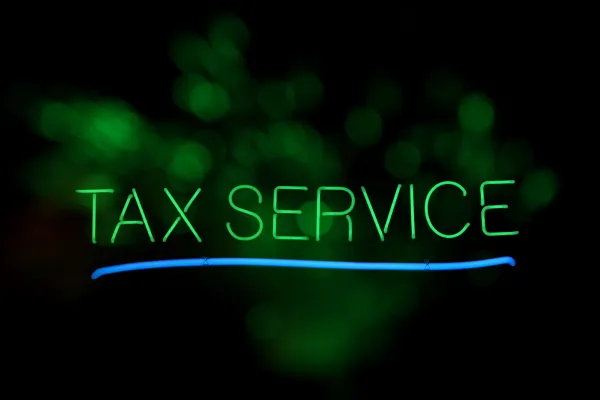Frequently Asked Questions
Blog

What If My CPA Does Not File My Tax Return?
If you hire a certified public accountant (CPA) or another tax professional to prepare your taxes, you’ll ordinarily rely on him or her to electronically file your return for you.
What happens if the tax pro fails to file your return?
You have a problem.
This nightmare scenario happened to Wayne Lee, a Florida surgeon who earned over $1 million per year. Lee hired
a CPA to prepare his taxes for 2014, 2015, and 2016; carefully reviewed all of his returns; and signed IRS Form 8879 authorizing the CPA to file the returns electronically.
(Generally, tax pros are required to e-file the returns they prepare on behalf of their clients.)
Unwelcome surprise. On December 5, 2018, an IRS agent visited Dr. Lee’s office and informed him that he had failed to file any tax returns for 2014, 2015, and 2016. This was the first Lee had heard about his CPA’s failure to file his tax returns with the IRS.
Lee had moved to a new office and instructed his CPA to update his address. That didn’t happen. The result: Lee never received the letters the IRS sent to him about his failure to file.
Lee’s CPA later admitted that he had never filed the returns. His excuse: the tax preparation software he used was incapable of preparing Dr. Lee’s complex tax returns.
Problem 1
Lee always overpaid his estimated taxes so that he would not be penalized when he filed his tax returns. He would then apply his overpayments for the current year to his next year’s return.
But when his CPA did not file his tax returns for 2014, 2015, and 2016, the overpayment strategy failed. Get ready for this: Lee lost his 2014 overpayment of $288,409 to the statute of limitations. And the loss of that cash also triggered the penalties in Problem 2.
Problem 2
To correct the malpractice of the CPA, Lee late-filed his returns for 2014, 2015, and 2016. He ended up owing over $70,000 in failure-to-file and failure-to-pay penalties. Lee paid what he owed and sued the IRS in federal court for a refund of the penalties. He lost.1
Taxpayers who fail to file their returns by the deadline must pay failure-to-file and failure-to-pay penalties. But there is an exception: the penalties need not be paid if the failure to file was “due to reasonable cause and not due to willful neglect.”
“Reasonable cause” means the “the taxpayer exercised ordinary business care and prudence” but was still unable to file the return on time or to pay the tax.3
Unfortunately for Lee, the United States Supreme Court held in 1985 that a failure to timely file tax returns is not excused by a taxpayer’s reliance on an agent (such as a CPA or an attorney) to file them. Moreover, the Supreme
Court declared that this is a “bright line” rule to which there are no exceptions.4
In effect, the Supreme Court concluded that the duty to file a tax return is non-delegable. A taxpayer who delegates this duty to another, including an attorney or accountant, is still legally obligated to confirm that the return is timely filed.
The Supreme Court case involved a paper-filed estate tax return. Lee argued that the Supreme Court’s paper-filed Boyle rule should not apply to e-filed returns.
After completing Lee’s returns, the CPA had Lee review and approve them and then sign Form 8879, IRS e-file
Signature Authorization, giving the CPA permission to e-file them.
Lee argued that at that point, there was nothing more he could do, since taxpayers cannot e-file returns on their own. Thus, according to Lee, the failure to file the returns was beyond his control.
Unfortunately, the court didn’t buy Lee’s argument. It said that even though the return had to be e-filed by the CPA, Lee still had a duty to ensure that it had been submitted to the IRS.
You probably think this result is unfair, and you’re right. In fact, the National Taxpayer Advocate, in her 2024 report to Congress, called this case “grossly unfair.” The Advocate recommended that the law be changed so that if a tax return preparer fails to e-file a client’s return, the taxpayer should be eligible to receive reasonable-cause relief from the failure-to-file penalty.
Check with the IRS
Whether the change recommended by the Advocate will ever be made is unclear (there is no pending legislation).
In the meantime, you should always check with the IRS to make sure that your CPA or other tax preparer has actually e-filed your tax return. The easiest way to do this is to establish an online account at irs.gov and request a tax account transcript. This can be done online.6
It takes two to three weeks after your return was supposed to be filed for the transcript to show your return. If the transcript does not show your return, check with your tax preparer.
File Your Return Yourself
Alternatively, you can always file your tax return yourself. But you must do so by mail. Taxpayers can’t electronically file their returns themselves—they must rely on a tax preparer (or tax software provider) to do so for them.
To file your return by mail, you must give your tax preparer a hand-signed and dated statement that you choose to file your return in paper format and that you (and not the preparer) will submit the paper income tax return to the IRS
Here’s an example from the IRS of a statement that you can use:8
My tax return preparer, [INSERT PREPARER’S NAME], has informed me that [INSERT s/he] may be required to electronically file my [INSERT TAX YEAR] individual income tax return [INSERT TYPE OF RETURN: Form 1040,
Form 1040A, Form 1040EZ, Form 1041, Form 990-T] if [INSERT s/he] files it with the IRS on my behalf.
I understand that electronic filing may provide a number of benefits to taxpayers, including an acknowledgement that the IRS received the returns, a reduced chance of errors in processing the returns, and faster refunds.
I do not want to have my return electronically filed, and I choose to file my return on paper forms. I will mail or otherwise submit my paper return to the IRS myself. My preparer will not file or otherwise mail or submit my paper return to the IRS.
Date and sign this statement, and give it to your tax preparer to keep. Don’t file it with your return.
Your preparer must complete Form 8948, Preparer Explanation for Not Filing Electronically, and attach it to the paper tax return that you will mail.9
Filing a paper return will significantly slow the IRS processing of your return, which may prove a hardship if you’re owed a refund.
Takeaway
Here are four takeaways from this article:
You bear the ultimate responsibility for filing your tax returns with the IRS and are subject to failureto-file and failure-to-pay penalties if your tax returns are not filed on time.
The failure of your CPA or other tax preparer to e-file your tax return is not reasonable cause to
excuse imposition of tax penalties. This is a “bright line” rule—no exceptions.
To avoid penalties, you should check with the IRS to make sure your returns have been filed. You
can do this at the IRS website.
You can always file your return yourself, even when it is prepared by a tax professional. To file
yourself, you must file a paper return by mail or private delivery service. You must provide your paid
preparer with a signed statement that the return will be so filed. Your paid preparer must attach IRS Form 8948 to the paper tax return that you will file.


We help Investors & Entrepreneurs pay less taxes.
© TrueBooks CPA All rights reserved.
